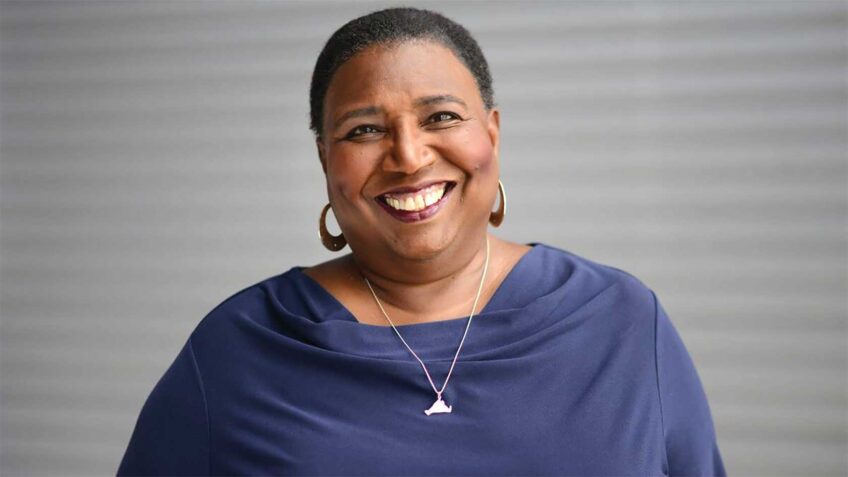In an age when some Americans have had the gall to question the citizenship of President Barack Obama, the message of “The Adventures of Huckleberry Finn” resonates all the more strikingly.
Mark Twain’s 1884 masterwork, capturing the vernacular and the white-centered civilization of pre-Civil War America, continues to prove a scathing attack on racism.
Princeton scholar Cornel West has called the novel “a funky text” that “tells the truth about America,” and cautions “don’t deodorize it for the reality-denying audience of contemporary America.”
So it goes with the Tony Award-winning musical “Big River,” now in an ultimately stirring, if sometimes disturbing, revival by the Lyric Stage Company of Boston.
Lyric Stage Artistic Director Spiro Veloudos, taking his cue from the title of the musical, gives ample attention to America’s River right from the start. Projection designer Seaghan McKay provides a handsome opening framed and moving map of the Mississippi that smartly establishes the river route taken by Huck and his runaway slave friend Jim.
While the story in both Twain’s inspired original and William Hauptman effective adaptation looks at the adventures from the point of view of white Huck, the novel and the book of the musical never mince words about the brutal treatment of blacks in the lands along the river.
Both also give Jim memorable moments of majesty as a true conscience for conflicted Huck and a man committed to freedom and self-determination.
As always, “Big River” flows best when it focuses on its heroic voyagers. Jordan Ahnquist and De’Lon Grant respectively play Huck and Jim with appealing energy and sing their striking duets with great feeling.
Ahnquist catches Huck’s revealing naïveté and telling realization that his loyalty to Jim goes against the supposedly civilized white society which he has been espousing. He brings proper gusto to Huck’s exuberant first and second act solo, “Waitin’ for the Light to Shine.”
Grant captures all of Jim’s radiant humanity and his unyielding virtue. This big-voiced actor has been waiting for a breakthrough role like Jim. With sharp phrasing and rich tone, Grant brings extra force to his standout duets with Ahnquist “Muddy Water” and especially the moving “River in the Rain.”
The disturbing moments occur in the portrayal of the river-surrounding society itself. Twain put enough vivid vernacular and detail in his novel so that the unnerving currents of racism require no exaggeration.
Unfortunately, the Lyric Stage revival seems to call on such stellar Boston actors as Maureen Keiller as Widow Douglas, Leigh Barrett as Miss Watson and Paul D. Farwell as Pap Finn to overdo their accents. The result — an overdoing of accent and dialect that threatens to turn their roles into caricatures — is very surprising from a director known for meticulous attention to characters (“Sunday in the Park with George” and “Grey Gardens,” among others).
Usually strong character actor Farwell’s Pap ought to be more intimidating. By contrast, J.T. Turner has the right menace as the King and Peter A. Carey, fitting slickness as the Duke — both characters who need to be hypocritically expansive and duplicitous.
Also, winning Nicholas Lee brings amusing cheeriness to Hillsboro hick A Young Fool. Elsewhere in the Arkansas stretch, black actresses Nellanna as Betsy and Kami Rushel Smith as Alice — both in their Lyric Stage debut — have fine vocal moments, but the revival could do more with the inner dignity of their characters.
Besides McKay’s notable projections, the effective design includes Scott Clyve’s painterly twilights and Jamie E. Howland’s board-rich set that includes the river raft where Huck and Jim’s friendship grows and flowers.
Jim and Huck sing of an America where they are “Worlds Apart.” That gap unintentionally seems to characterize the difference between strong characterizations and regrettable caricatures in this production.
See “Big River” for the achievements of Ahnquist and especially Grant, and the show’s always timely message about racism.
At the same time, the power of Twain’s seminal novel needs more rushing currents here.






